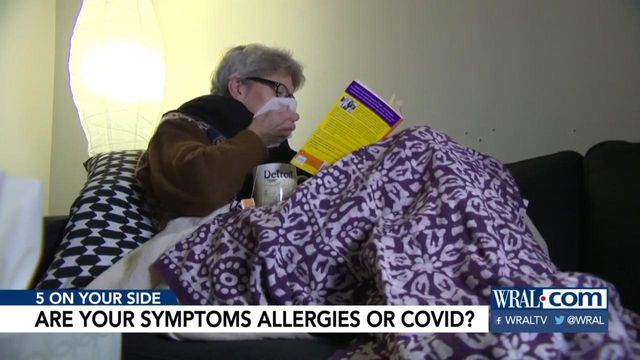Differences between COVID-19 and allergy symptoms to be aware of as spring approaches
For those new to central North Carolina, allergies can be a surprise.
The haze that fills the air and yellow dust that cover everything return each spring, but with COVID-19 still around, any sign of illness, like a lingering cough, is reason to take notice.
5 On Your Side's Monica Laliberte says there are distinctions between allergies and something more.
One big difference is a fever. Another is the loss of taste or smell. Those can be signs of COVID-19, so if that happens, quarantine and get tested right away.
If your eyes, nose and throat are itchy and you're sneezing -- it's more likely to be allergies.
To lessen the impact, shower at night to get rid of any pollen on your hair or skin.
Your pets could cause a reaction, too. Not only do they dump dander, they can carry pollen on their fur.
When vacuuming, consider the type of vacuum you use.
“Allergy sufferers should avoid a vacuum that collects debris in a bin, since particles can float back into the air when you empty it. A better choice would be a bagged model with a HEPA filter,” said Sara Morrow, with Consumer Reports.
Keeping your grass short can also help fight the allergy fog since short grass is less likely to release pollen than grass that’s long.











